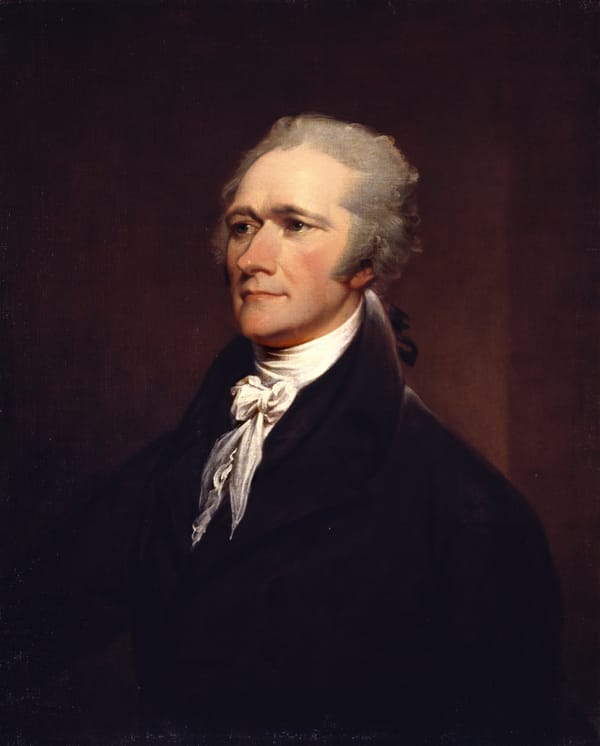The Political Philosophy of Being Unburdened
This site is basically not for doing political commentary. But I think there's an interesting political-philosophy wrinkle to this week's rather momentous political developments.
One theme of the first few hours after Joe Biden withdrew from the race for president and Vice President Kamala Harris became the presumptive nominee was how utterly flat-footed the Republicans seemed to be, how they seemed to just have no idea how to go after her. The Venn diagram thing got a lot of attention, up to and including Monday's xkcd. But my personal favorite was this from James Lindsay, a.k.a. "Conceptual James" a.k.a. Jimmy Concepts:

"Unburdened" has been one of the memes that have sprung up around Harris, along with, obviously, all the coconut stuff. If you just fell out of a coconut tree and somehow don't know what I'm talking about, it's a reference to this passage from a speech she gave last year:
My mother used to — she would give us a hard time sometimes, and she would say to us, ‘I don’t know what’s wrong with you young people. You think you just fell out of a coconut tree?’
You exist in the context of all in which you live and what came before you.
Now what's interesting, putting these two Kamala Harris Memes together, is that they kind of seem to take opposing stances on the relevance of the past. I don't actually think that's true. But the reason I find this philosophically interesting is that the relevance of the past has been a point of contention in political theory world, and not necessarily with the valence you might expect.
Robert Nozick, for those who are unaware, was John Rawls's big antagonist on the right. Rawls had, of course, articulated a theory of justice most famous for the "difference principle," the notion that material goods should be distributed in society in a manner that maximizes the position of the least-well-off social class. In other words, wealth inequality is only permissible to the extent that it improves the position of the poor.
Nozick responded with a libertarian critique, and his central grievance against Rawls is that Rawls did not care about the historical process by which a certain distribution of wealth might have come about. For Nozick, how people acquired their wealth is the key. There are certain legitimate/rightful ways of acquiring wealth, including (for Nozick) basically any kind of voluntary transaction. And if wealth was acquired legitimately, then we cannot and should not scrutinize the resulting distribution or think to alter it by government fiat. That's theft.
The fact that Rawls's philosophy does not care about history is one of my favorite things about it. The idea that social justice can be assessed as what the scientists call a "state function," that there are certain end states that are simply per se unacceptable regardless of how they came about, indeed that any process that led to such a state of affairs cannot have been entirely innocent. It has, I think, the virtue of cutting through a lot of bullshit, in a way that reminds me a lot of my grandfather's famous approach to the legal question in Brown v. Board of Education. Sometimes there is nothing to say except "this cannot be right," and Rawls's approach lets us just say that.
What this has to do with Harris, of course, is that you might think that Rawls's approach is kind of a "just fell out of a coconut tree" mentality. It's Nozick on the other hand who wants us to "exist in the context of all in which we live and all that came before us." We might think, that is, that wealth inequality is unjust, but this is naïve of us, that we are ignoring the history through which that wealth was acquired. Once we are made mindful of this, Nozick thinks, we will see (or at least might see – it's not altogether clear that he means to defend the existing real-world state of affairs as having complied with his theory) that the rich acquired their wealth legitimately and have a rightful claim to it.
So it's interesting, then, that mindfulness of the history of wealth acquisition seems to be a left-wing thing these days. I think there are a couple of reasons for this:
- Everyone knows that, in fact, the history of wealth acquisition in this country cannot be defended on procedural grounds. Thus, being mindful of the context of all that came before us would obviously entail reparations.
- Conservatives are no longer scared, as Nozick was, of any serious effort to evaluate current wealth inequality against any kind of theory of justice. Nozick effectively won his debate with Rawls so thoroughly that left-wing claims for wealth redistribution must be couched in terms of reparation for past procedural wrongs.
And of course all of this makes clear why the bit about "seeing what can be, unburdened by what has been" is so scary for them. That's exactly what Rawls wanted us to do! The distribution of wealth in society, he tried to teach us, is an ongoing policy choice. The world is the way it is today because of the choices we have made in the past (we exist in the context of all that came before us), and we get to choose today what the world will be like tomorrow (unburdened by what has been). Nozick on the other hand expressly wants the past to control the future. And indeed I think that in the way Harris expresses all of this we can see just how much more scope Rawls's account leaves for human freedom.

